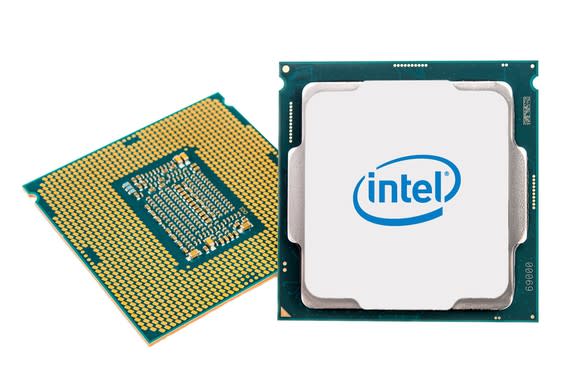How Manufacturing Struggles Hurt Intel Corp.'s Chances With Apple Inc.
Chip giant Intel (NASDAQ: INTC) was once known for being the undisputed leader in chip manufacturing technology. Intel was, for years, the first company to transition to new manufacturing technologies, and for a while, it had a substantial lead over its competitors in terms of performance, power, and area.
Intel leveraged that manufacturing advantage to build products that were significantly more powerful and more power-efficient than what the competition could hope to make.

Image source: Intel.
Unfortunately for Intel, two things have happened to erode the company's leadership position. First, Intel's transitions to new manufacturing technologies have been significantly delayed, almost certainly due to technology development issues. Intel's 10-nanometer technology, for example, was supposed to go into mass production by the end of 2015, but now it's on track to go into production sometime in the second half of 2018.
As if that weren't enough, it seems that Intel's struggles aren't industrywide -- they're Intel-specific. Intel's main competitors, Taiwan Semiconductor Manufacturing Company (NYSE: TSM) and Samsung (NASDAQOTH: SSNLF), have been executing well. Today, both companies are mass-producing chips that are arguably more advanced than anything Intel is building.
I believe Intel's failure in chip manufacturing could be a major reason Apple (NASDAQ: AAPL) is reportedly trying to transition its Mac computers away from Intel processors and toward its own. Allow me to explain.
Intel's falling behind
Right now, Intel isn't woefully behind TSMC (Apple's current A-series processor manufacturing partner) in terms of chip manufacturing technology -- only slightly in certain metrics (such as chip area).
However, by the 2020 time frame -- not-so-coincidentally, the same time-frame by which Apple will reportedly move to using its own processors inside the Mac -- things could look different.
For some perspective, TSMC is expected to produce Apple's A12 processors using its 7-nanometer technology later this year. TSMC is also likely to build the A13 on an upgraded version of TSMC's 7-nanometer technology, known as 7-nanometer+, next year.
In the year after that, TSMC is expected to go into mass production on its 5-nanometer technology, which TSMC says will lead to both significant power efficiency and performance improvements as well as a large chip area reduction.
Intel, on the other hand, has been far less clear about its manufacturing timelines. The company is expected to begin mass-producing chips using its 10-nanometer+ technology (this should be the rough equivalent to TSMC's 7-nanometer+ technology) in the second half of 2018, and it is likely to mass-produce chips using its 10-nanometer++ sometime in 2019.
What's less clear, though, is when Intel will start building chips using its 7-nanometer technology (the rough equivalent to TSMC's 5-nanometer technology). Ideally, Intel should start shipping its first 7-nanometer chips sometime in late 2020, but Intel hasn't said anything publicly about its planned 7-nanometer timing (and even if it does, Intel's manufacturing technology plans have often slipped relative to their publicly stated expectations).
Ultimately, the strong manufacturing track record of other chip manufacturers like TSMC and Samsung and Intel's increasingly poor one could be a factor in Apple trying to move to in-house designed processors for the Mac. Not only would Apple have potentially more reliable manufacturing partners, but if Intel further falls behind, Apple can leverage the superior manufacturing capabilities of non-Intel manufacturers to gain an edge over its rivals in the PC market, which by-and-large use Intel processors.
More From The Motley Fool
Ashraf Eassa owns shares of Intel. The Motley Fool owns shares of and recommends Apple. The Motley Fool has the following options: long January 2020 $150 calls on Apple and short January 2020 $155 calls on Apple. The Motley Fool recommends Intel. The Motley Fool has a disclosure policy.
